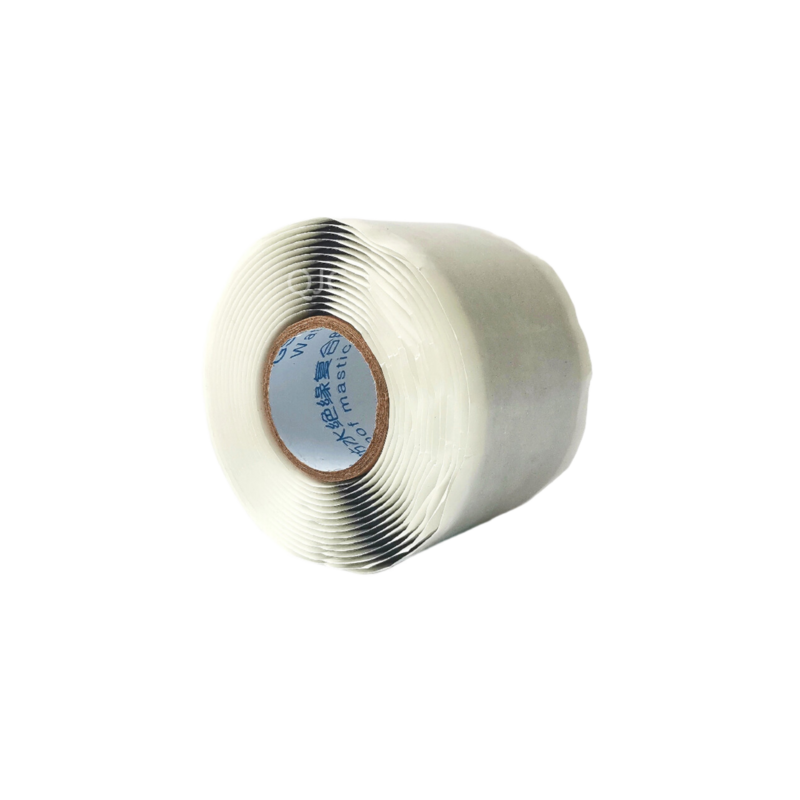The Importance of Rubber Insulating Tape in Electrical Applications
Rubber insulating tape is an essential component in the electrical industry, widely used for a variety of applications that require effective insulation and protection. This specialized tape is made from rubberized materials that offer excellent adhesive properties, flexibility, and durability, making it a preferred choice for electricians and technicians.
One of the primary uses of rubber insulating tape is to provide insulation for electrical wires and connections. Electrical wires are often exposed to various environmental conditions that may lead to damage or deterioration over time. Rubber insulating tape serves as a protective barrier, preventing moisture, dust, and other contaminants from causing short circuits or electrical failures. Additionally, it helps to ensure that electrical connections remain secure and insulated, thereby reducing the risk of electrical shock or fire hazards.
The tape is designed to withstand a broad range of temperatures, making it suitable for both indoor and outdoor applications. Whether it’s insulating wires in a residential setting or securing connections in an industrial environment, rubber insulating tape performs reliably under different climatic conditions. Its superior elasticity provides flexibility, allowing it to conform to irregular surfaces and fit snugly around wires and components.
Another advantage of rubber insulating tape is its resistance to aging and UV radiation
. Unlike other types of insulation materials that may degrade over time, rubber tape maintains its integrity and performance, ensuring long-lasting protection for electrical installations. This property is especially beneficial for outdoor applications where exposure to sunlight and harsh weather conditions can compromise the effectiveness of insulation.rubber insulating tape

Rubber insulating tape is also known for its excellent electrical insulating properties. It typically has a high dielectric strength, which means it can withstand significant electrical stress without breaking down. This makes it ideal for applications where high voltage is involved, providing a reliable layer of protection to prevent electrical arcing and short circuits.
In addition to its insulating properties, rubber tape is often used for bundling and organizing wires. Electricians frequently use it to neatly group cables, reducing clutter and improving the overall appearance of electrical installations. This not only enhances safety by minimizing tripping hazards but also simplifies maintenance and troubleshooting processes.
When it comes to application, rubber insulating tape is quick and easy to use. Its self-adhesive backing allows it to stick firmly to various surfaces without the need for additional adhesives or fasteners. Electricians can apply it directly to the wires, and it adheres well even in challenging conditions. For best results, it's important to stretch the tape slightly as you wrap it around the wire, ensuring a tight seal that maximizes insulation effectiveness.
Safety is paramount in electrical work, and using high-quality rubber insulating tape is a critical aspect of ensuring that safety standards are met. Electricians should always choose tapes that comply with industry regulations and standards. This ensures that the tape will perform as expected, providing the necessary protection for both the installer and the end-users.
In conclusion, rubber insulating tape is a vital tool in the electrical industry, combining durability, flexibility, and high insulating properties. Its applications range from insulating wires and connections to organizing and securing electrical systems. As technology continues to evolve, the materials used in rubber insulating tape are also improving, enhancing its efficiency and effectiveness in electrical applications. For anyone involved in electrical work, understanding the importance and proper use of rubber insulating tape is essential for maintaining safety and ensuring the longevity of electrical systems.
-
XIANGFAN Rubber Tape-Ultimate Solutions for All Your Insulation NeedsNewsJun.24,2025
-
XIANGFAN Rubber Tape-Protection for Industrial and Residential ApplicationsNewsJun.24,2025
-
XIANGFAN Rubber Tape: Superior Safety and Sealing for Demanding EnvironmentsNewsJun.24,2025
-
XIANGFAN Rubber Tape: Reliable Solutions for Every Electrical ChallengeNewsJun.24,2025
-
XIANGFAN Electrical & Industrial Tape: Powering Reliability Across IndustriesNewsJun.24,2025
-
XIANGFAN Electrical & Industrial Tape: Excellence in Every ApplicationNewsJun.24,2025
